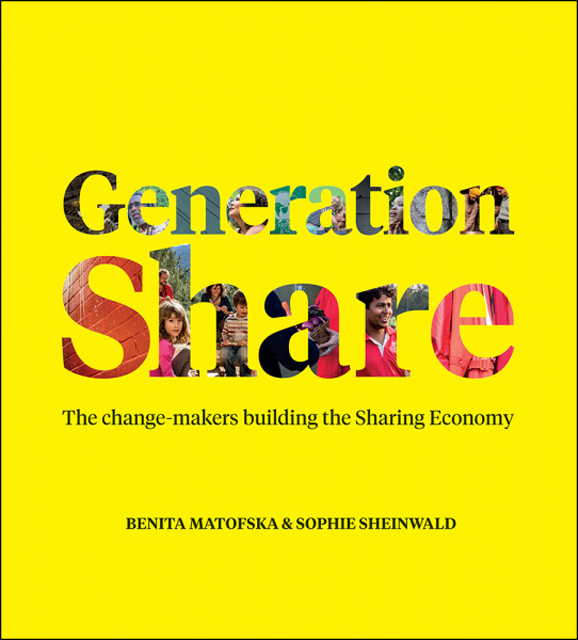Book contents
- Frontmatter
- Dedication
- Miscellaneous Frontmatter
- Contents
- Our Sponsor
- What Is The Sharing Economy?
- Does Age Matter?
- Sharing By Gender
- Sharing The City
- Sharing The Countryside
- Sharing The Money
- Is Sharing Cultural?
- Sharing And Disability
- The Geography Of Sharing
- Conclusion
- Notes
- Generation Share demonstrates the power of Sharing. The change-makers show just what’s possible – now it’s your turn. What can you share? How can you make a difference?
Sharing The Countryside
Published online by Cambridge University Press: 14 October 2022
- Frontmatter
- Dedication
- Miscellaneous Frontmatter
- Contents
- Our Sponsor
- What Is The Sharing Economy?
- Does Age Matter?
- Sharing By Gender
- Sharing The City
- Sharing The Countryside
- Sharing The Money
- Is Sharing Cultural?
- Sharing And Disability
- The Geography Of Sharing
- Conclusion
- Notes
- Generation Share demonstrates the power of Sharing. The change-makers show just what’s possible – now it’s your turn. What can you share? How can you make a difference?
Summary
If the notion of idyllic, peaceful country life appeals, just imagine combining all that greenery with a Sharing lifestyle. That’s what Giorgos Vallis did when he left the ‘madding’ crowds of Athens and headed for his birthplace Paliomylos, on the Greek island of Evia. His mission: to build a rural eco-farm and self-sustaining community based on the principles of Sharing and permaculture. Giorgos is not alone in his vision (well of course not, he’s sharing). In fact, escaping the city is a dream many urbanites have. By 2025, it’s predicted that in the UK alone, half a million of them will have abandoned urban life to move to the countryside. And it’s easy to understand why. Rural lifestyles are reportedly healthier, wealthier and happier,70 with 31% of people saying they ‘love’ the area in which they live, compared to just 16% in cities. But is there something more significant at the heart of this rural migration and the lure of pastures new?
Gandhi described the village as ‘the soul of India’, a place of authenticity, community and cooperation. In India, the village is a place where Sharing is such an innate aspect of life, there isn’t even a local word for it. Country living is often characterised by strong social bonds, as Hillary Bee from Time to Breathe, Totnes, says, ‘It is easier to share in a smaller place where the networking is much deeper. You share with someone in multi-layered ways. You don’t just see them in one context. You have seen their cousin, you have gone dancing with their brother and you know who they dated. There is a depth of information which makes sharing easier.’
Indeed, many Sharing traditions can be traced back to the countryside. Hitchhiking is an original form of ridesharing and ‘gleaning’ is a custom originating in the Old Testament, where leftover crops were collected from farmers’ fields following a harvest. The New Deal era in 1930s America saw the birth of electricity and phone cooperatives among farming communities, making the amenities affordable through sharing. Indeed, this reliance on others and a culture of Sharing is inherent to village life where, traditionally, each person contributes something – a skill, job or resource – to make up a micro-sharing economy.
- Type
- Chapter
- Information
- Generation ShareThe Change-Makers Building the Sharing Economy, pp. 155 - 178Publisher: Bristol University PressFirst published in: 2022



